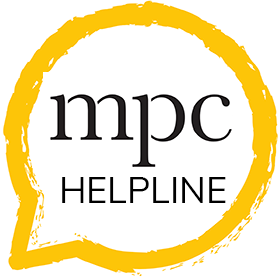
Facts about stammering
If you are a parent of a child who stammers, or if you think your child might be stammering you probably have some questions. This page covers some key facts about stammering but you may also want to look at our what causes stammering, our top tips for parents and our get help pages.
If you still have questions you can call the Michael Palin Centre helpline to chat with one of the therapists.
When does stammering start?
Children usually start to stammer when they are between 2 and 5 years of age. This is when language skills typically are developing quickly and children are starting to use longer words or speak in sentences. It means that there is a lot more load on the child’s still-developing speech motor system at this time.
Stammering can also start later than this. It may start gradually or quite suddenly.
Gender
Stammering affects equal numbers of boys and girls to start with but girls are more likely to stop stammering so that later on there are about 4 or 5 times as many boys who stammer as girls.
How many people stammer?
Past research has shown that about 5% of children stammer at some point. More recent studies suggest that up to 8% could be a more accurate figure. Within the adult population 1% of people stammer.
Variability
Stammering usually varies a lot, from day to day and from situation to situation. This is because many different things, internal and external to your child, affect fluency.
You may see a pattern (your child stammers more when they are tired, trying to get their turn in the conversation, when excited, when in a new situation, or when they are saying something long and involved) or you may not. There are no hard and fast rules. If something stands out it can be helpful of course but it might not be helpful keep trying to figure out a pattern if there just doesn’t seem to be one.
Your child will probably not be able to say why they stammer more sometimes and less at other times.
You may also notice that your child goes through patches of stammering more or stammering less. This is what we expect.
Other facts
- There is no relationship between stammering and intellectual ability.
- People from all walks of life, everywhere in the world, stammer.
- While many parents worry that stammering can have a negative impact on how well their child does at school, how able they are to express themselves, be themselves, follow a desired career or even be happy in their life, stammering, if it continues, does not have to limit these things. There are many, many highly successful people, and famous people, in various walks of life who stammer.
- Stammering has historically been the source of stigma. Changes in how society views stammering are gradual but important.
FAQs
It is not possible to say definitively what will happen for any child.
Most young children stop stammering without needing any help. It fades away naturally. This tends to happen within a year or so of it starting, so often before they start school.
Some children will continue to stammer.
Things that increase risk are if there is a family history of stammering, if the child is a boy, and if they have (or have had in the past) speech sound difficulties.
None of these things, if present, mean that a child will definitely continue to stammer. They just increase vulnerability.
Our assessment clinic at the MPC is designed to help you understand the different factors that are relevant for your child.
Ask for help and advice from a specialist speech and language therapist if:
- you are worried that your child might be stammering
- your child has been stammering for more than a year and it is not, overall, lessening
- you are worried about it, for any reason.
- you are told to “wait and see” or “he’ll grow out of it” but you are still worried.
Talk to your local speech and language therapist or call our helpline on 020 3316 8100
Go to our get help section for more information.

Sometimes you just need someone to talk to


Sometimes you just need someone to talk to
Our Helpline, 020 3316 8100, is open during office hours (9am-5pm) and voicemail messages can be left when the office is closed.
“I liked it and I had fun.”
Become a Friend
Receive emails with news and information about the Centre's work, events, and fundraising.
Sign up